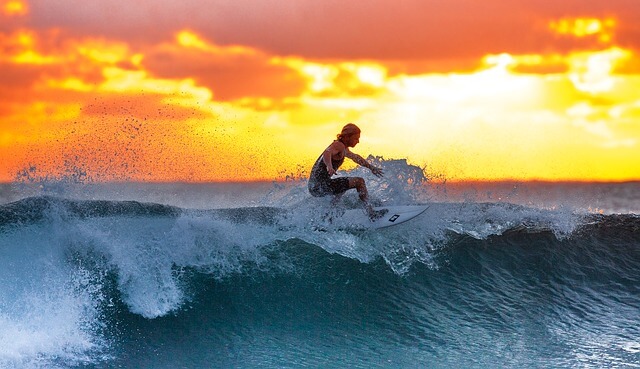Probably you have been around with your longboard surf SUP board. Learning all the basics, now you are ready to challenge yourself for learning to ride a smaller Surf SUP. People call it as downsizing your board. When you do, it can take your SUP surfing to the whole new level.
However, it is essential to note that downgrading the surf SUP board is not equivalent to upgrade skills. Learning to surf well on smaller board is a process that you need to stick with.
For instance, getting through the whitewater is a start. Before worrying about catching the waves, you will need to have the bravery to get through them. Paddling out through whitewater is not as simple as it seems, especially on the downsized volume board.
The very first step is to attain a solid base for yourself. You will want to position your feet with the mix of surf stance and parallel stance. This specific position is beneficial in maintaining your stability when facing the waves out there.
If the whitewater comes to you, you will want to paddle through it. When the whitewater is near, you will want to get the regular surf stance, put the weight at the back of the board, and elevate the nose of the board a little bit. Then, you will need to administer hard strokes. You could stay low with your knees bent. The trick does not come overnight. You will need to practice it. Tell your instructor about the challenges, and you will fix it together.
When it comes to the wave search, finding the right one can make a massive difference in your SUP surfing experience. You will want to maintain the balance in the lineup and choose the right waves.
The success key is to relax and beat your fears. Stay loose while you maintain the weight distribution. The other key is to know the momentum. You will want to keep paddling to retain it. Your instructor might say that your paddle is your third leg. Well, it is true. You could use it to brace.
When picking the waves, you need to know that the shorter board will need a steeper face. So, you will need to be patient and observant.
Riding the waves is another thing. Shorter board indeed requires more work and efforts from the players. When the tide is fast approaching, you will want to be ready and pay attention to the nose of the board. Your positioning is critical. If you are too far back on the board, the waves might pass you.
Keep practicing. You don’t have to do it all alone, though. Many surfboard rental near me instructors will gladly help you.

